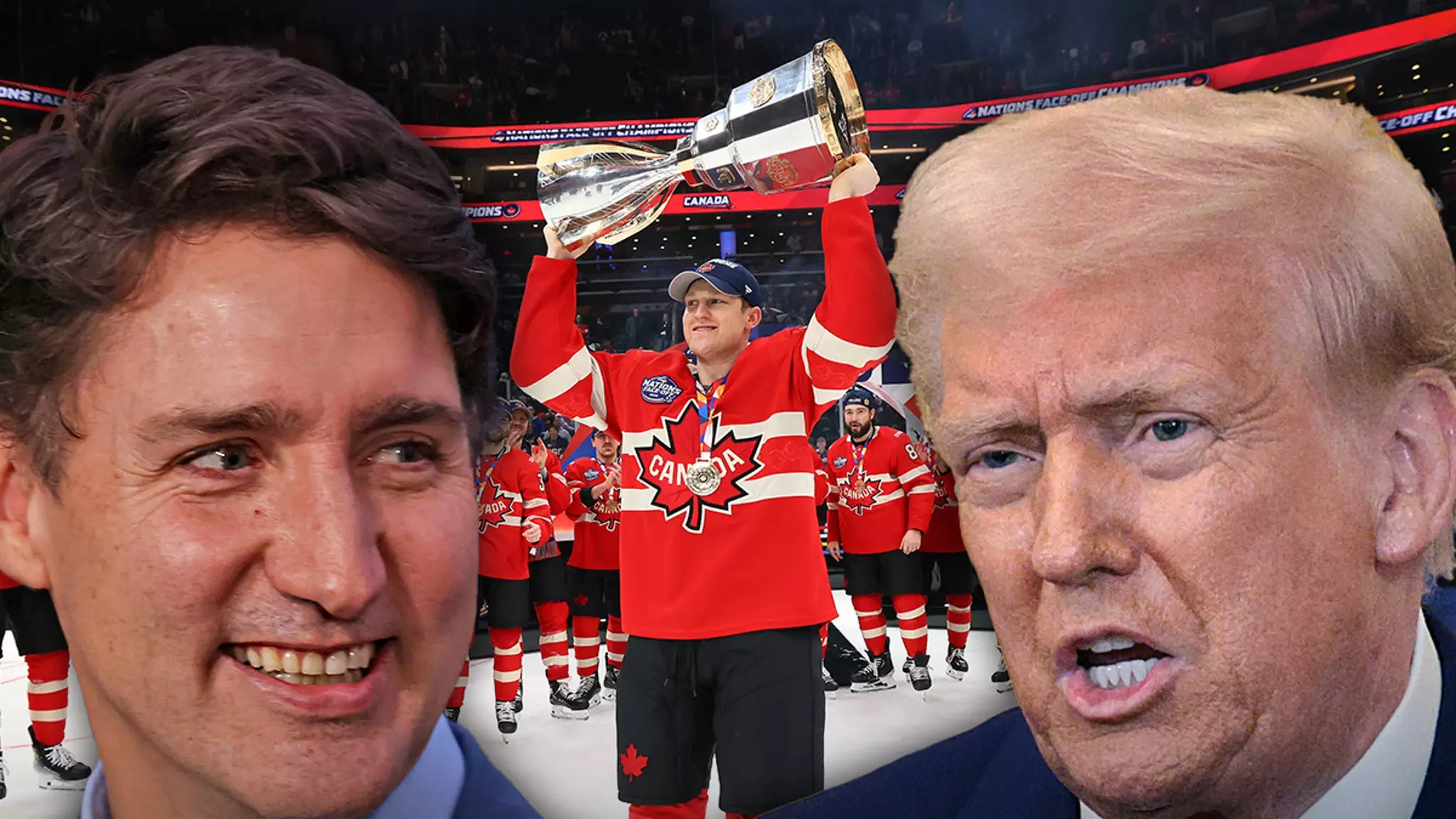In a dramatic display of athleticism and national pride, Canada triumphed over the United States in the recent 2025 4 Nations Face-Off tournament, clinching the championship in thrilling fashion. This match, marked by an overtime goal from star player Connor McDavid, not only showcased the skill of both nations but also highlighted the underlying tensions that have recently surfaced in their political landscape. As Justin Trudeau celebrated the victory on social media, the implications of the game extended far beyond mere sportsmanship, adding a layer of intrigue to their age-old rivalry.
The atmosphere surrounding the tournament was electrifying, fueled by a combination of fierce competition and palpable hostility. Both sides’ fans showcased their national pride through a series of boos directed at the opposing team’s anthems, demonstrating that the rivalry is as significant off the ice as it is on it. During the initial matchup in Montreal, Canadian supporters jeered the U.S. national anthem, while during the decisive game at TD Garden in Boston, American fans retaliated by booing “O Canada.” This behavior escalated quickly, manifesting not only through the jeers but also in multiple on-ice altercations within the first moments of gameplay, encapsulating the angry spirit of the match.
The Political Backdrop
The rivalry was not merely limited to ice hockey; it echoed the current political situation between the two neighbors. With Donald Trump’s controversial remarks regarding the annexation of Canadian territory still fresh in public memory, Trudeau’s social media post after the game played directly into the political narrative, asserting Canada’s right to both their land and their beloved national pastime. This moment illuminated how deeply intertwined sports are with national identity and regional politics. The sport became a battleground for sentiments that run far deeper than puck scores and points.
While Canada basked in the glory of their victory, the U.S. team faces a long wait for the opportunity to reclaim their honor on the international stage. The next significant meeting between these two hockey powerhouses will likely occur during the Winter Olympics, about a year away. The anticipation leading up to this event is bound to increase as both nations prepare — not just for the spectacle of hockey, but also for the chance to settle scores amid rising political tensions.
As thrilling as the championship game was, it served as a stark reminder of how intertwined sports can be with political discourse and national identity. The competitive spirit of both teams reflected not only their desire to win but also the deeper emotions rooted in their respective countries’ current dynamics. For hockey fans and political observers alike, this event was a poignant illustration of how athletics can echo broader societal themes, transforming a game into a microcosm of international relations. Every goal scored and every cheer heard serves as a reminder that, while games are won and lost, the narratives they create often linger far longer.

